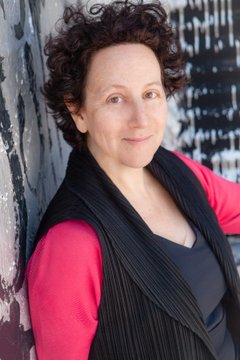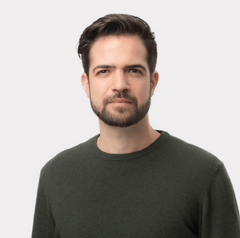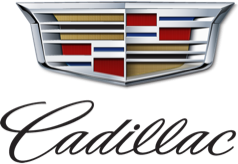Electric Autonomy Canada presents:
The electric fuelling station of the future:A design competition
Electric road trips, reimagined
How do we recharge not just our cars, but also ourselves at the pause point in a journey?
This design competition asks architects, landscape architects, engineers, designers and cross-disciplinary practitioners to reimagine the highway gas station of today as an entirely new Canadian roadside oasis for electric vehicles, where travellers can rest, play, eat, refuel and more. Unlike city driving, longer road trips create range anxiety in non-EV owners, representing a barrier to adoption. To accelerate the transition to
a low-carbon future, we want to show drivers the positive possibilities and innovative benefits of the EV lifestyle. Our international, award-winning jury is looking for inspiring, boundary-breaking work that will help reinvigorate the built environment along Canada’s transit and tourism corridors to serve as a blueprint for the future.
Our hope is that this competition will spark a holistic rethinking of the refuelling experience and explore the opportunities presented by the electrification of our infrastructure.
“A key area of misunderstanding is that electric cars are inconvenient on long trips because they can take 20 minutes or more to recharge. EV drivers know that these planned charging stops often enhance their journeys, rather than diminish them.”
Awards
First prize: $25,000 CAD
Second prize: $10,000 CAD
Third prize: $5,000 CAD
Honourable mentions
Honourable mentions will be made at the discretion of the jury.
All winning proposals will be shared with architectural magazines and websites. We will also publish a selection of competition entries that caught the jury’s attention, along with the prize winners and a jury summary, on Electric Autonomy Canada.
Jury

Claire Weisz
Principal-in-Charge,
WXYBorn and raised in Alberta, Claire Weisz is the Founding Principal of New-York-based WXY architecture + urban design, which is globally recognized for its place-based approach to architecture, urban design, and planning. In 2019 Fast Company named WXY one of the World’s Most Innovative Architecture Firms.

Bruce Kuwabara
Founding Partner,
KPMB ArchitectsBruce Kuwabara is a recipient of the RAIC Gold Medal (2006) and an invested Officer of the Order of Canada (2012) for his significant contributions to Canadian architecture and for shaping “our built landscape in lasting ways.” He was the lead design partner on 13 of KPMB’s 16 Governor General’s Award-winning projects.

Magalie Debellis
Manager, Cadillac Branded Advanced Design
Magalie Debellis is the lead exterior designer for Cadillac, focused on design of the brand’s electric vehicle portfolio. She has over 14 years of automotive design experience and specializes in creating the exterior design profiles and attributes for major vehicle brands.

Peter Vikar
Physical Design Director,
Local ProjectsPeter Vikar is a visual artist and design professional whose work explores the intersection of art, architecture and technology. At Local Projects, the award-winning experience design studio in New York City, his recent credits include the ZERO Gallery for Guggenheim Museum Bilbao.

Simon-Pierre Rioux
Président,
Association des Véhicules Électriques du QuébecSimon-Pierre founded the Quebec Electric Vehicle Association (AVÉQ) in 2013 with the vision of a social project for Quebec. The site is now consulted millions of times a year not only in Quebec but also in several French-speaking European countries. He was awarded the Al Cormier Award by Electric Mobility Canada in recognition of his exemplary leadership and thousands of hours of volunteer work.

Chelsea Sexton
EV Advisor and Advocate
Chelsea has been working to accelerate electric transportation since the mid-1990s as part of the ground-breaking General Motors EV1 program (featured in the documentary Who Killed the Electric Car?). She co-founded Plug In America, guided VantagePoint Capital Partners’ early investment in Tesla Motors and now works as an advisor, speaker, and collaborator with companies, non-profits and policy makers around the world.

Bindu Dhaliwal
Vice President Environmental, Social and Governance,
CIBCBindu Dhaliwal is responsible for CIBC’s ESG strategy, identifying and evaluating emerging ESG issues, and engagement activities with CIBC’s stakeholders. She is a frequent speaker on sustainability trends in the financial services sector and diversity & equity issues in the sector.

Wilf Steimle
President,
Electric Vehicle SocietySince 2016, Wilf Steimle has chaired the Electric Vehicle Society, which now represents the interests of the quarter million EV drivers in Canada. He has driven nearly 300,000 electric kilometres, charging coast-to-coast across Canada.

Ian White
Senior Vice President, Strategic Marketing and Innovation,
ParklandIan White is responsible for defining the customer value proposition and competitive positioning for Parkland, a leading international retailer and fuel marketer. In 2018, Mr. White was recognized as the Retail Leader of the Year at the National Convenience Industry Summit.

Nino Di Cara
President and Founder,
Electric Autonomy CanadaNino Di Cara is a passionate believer in electrification and the benefits that technology will bring to our future mobility. He is the recipient of the EV Society's 2020 Howard Hutt Award for Excellence in the Advancement of Electric Transportation.
Schedule
Aug 30, 2021
Competition launches and submission page opens
Nov 18, 2021
Submission deadline
Dec 7, 2021
Judging convenes
Feb 1, 2022
Winners Announced
About Electric Autonomy
Electric Autonomy is an independent news platform reporting on Canada’s transition to electric vehicles, autonomous transportation and new mobility services. Our editorial view is that electric vehicles have the potential to result in enormous benefits for society, such as safer, cleaner and more economical road transportation. Our mission is to facilitate knowledge sharing and best practices across diverse industry sectors and all levels of government to enable innovation and accelerate the transition to a low-carbon future.
The brief
Entrants are asked to incorporate the following design considerations:
- We are seeking a design for a roadside rest stop for a highway, allowing for visitors to engage in multiple activities, including vehicle recharging, dining and more. The design can take the form of a single building or multiple pavilions and areas.
- We do not have a specific site, but the site would need to accommodate charging for at least 20 vehicles simultaneously. These would be serviced by 10 fast-charging stations with 2 charge points per station.
- Highway electric charging takes approximately 20 to 40 minutes so the dwell time is significantly longer on site than a typical fuel pump of 5 minutes. (Visitors do not need to attend to their cars while plugged in.) Design solutions should reflect the travellers’ convenience and hospitality needs. Be creative with the amenities provided on site, which can range from retail to dining to play areas for children and other landscape design features.
- Consider parking and charging areas creatively. Recharging is completely non-toxic, so there are no hazardous materials involved. Aside from highway noise, electric vehicles are also considerably quieter.
- While this competition is primarily aimed at passenger-vehicle travellers, keep in mind that users of the station can include families and other groups of leisure travellers, business travellers and those driving on longer commutes.
Submissions must conform to the instructions provided below:
- Entrants are asked to include a submissions document of maximum 10 pages (pdf) that tells the story of their entry both graphically and in words in a comprehensive way, along with discrete images as specified below.
Image requirements
Image 1 (required): Site plan to scale that shows how the entire site is organized and facilities are integrated. A graphic scale must be provided. Suggested metric site plan scales include: 1:500, 1:1000 or 1:2000.
Image 2 (required): A 3D view of the overall concept proposed.
Images 3-6 (minimum 1 required, maximum 4): Conceptual drawings of key components of the overall facility with graphic scales or key dimensions included where appropriate. Please provide a description of each component or facility, with a maximum word count of 150 words, in the field provided.
Text requirements
Project statement: Title of the project and description text (750 words maximum) describing the proposal, how it satisfies the competition brief and some of the key features and experiences for the traveller proposed on site.
Entrant information: Entrants must provide their full name, preferred pronouns, affiliation (university if a student or recent graduate, company if a professional). For entries with multiple contributors, please provide this information for each member of the team and identify a team leader.
Optional media
Video: 1-2 90-second (max) high-res videos (.mp4) that further illustrates or supports your design; or,
GIFs: 1-2 GIFS that further illustrates or supports your design.
Scoring criteria
1. Innovative concept Competition Judges are looking for an innovative approach to the program brief that curates a new experience for EV drivers and their passengers, reinventing the traditional roadway pitstop, and transforming the dwell time into a positive experience.
30%
2. Design Guests should be treated to a novel, visually pleasing experience at every turn.
25%
3. Sustainability Proposed concepts should prioritize sustainable materials and building techniques. We are looking for a positive energy strategy that reduces carbon and is implementable in Canada today.
25%
4. Feasibility Design concepts should be feasible, taking into account Canadian weather, should there be interest in commissioning a project. No levitating car parks please!
20%
Rules and regulationsFull rules and regulations for download here.
FAQsFrequently asked questions for download here.
Media requests Please contact [email protected]
Awards inquiries Please contact [email protected]






